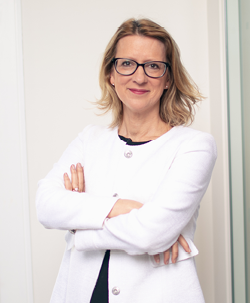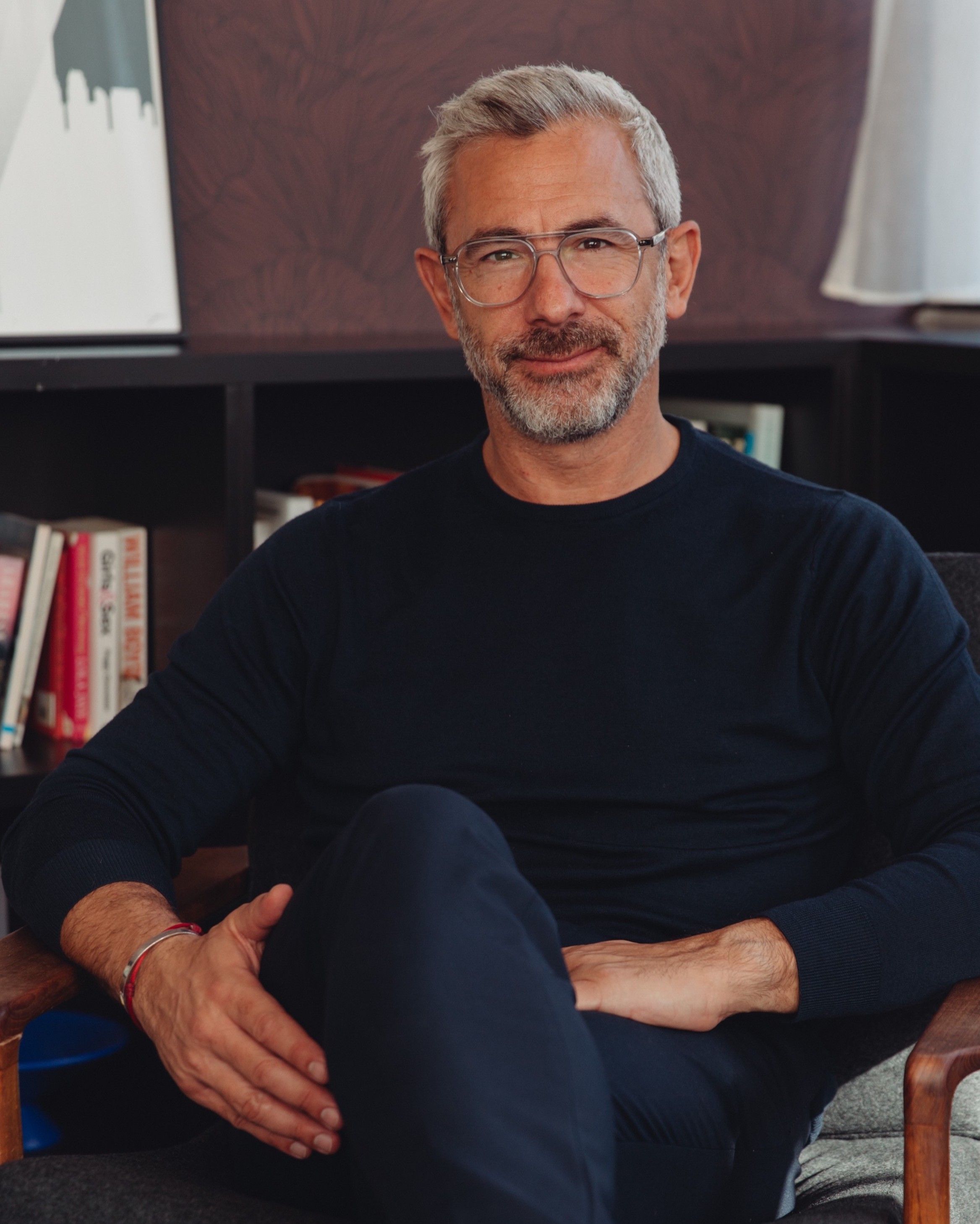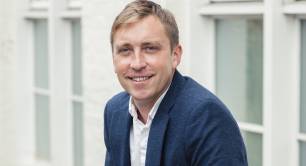The investee who changed me: ‘If I hadn’t met Charlie, Bridges’ story could have been very different’
Meeting a social investor can be game-changing for an entrepreneur – but sometimes the lightbulb moment is even more dazzling for the one controlling the cash. In the latest in our series on career-defining moments, Bridges Fund Management co-founder Michele Giddens explains how talk of recycled yoghurt pots helped make her organisation what it is today. But the story begins long before, when a conversation in a Polish tea room prompted a whole new direction...
When the Berlin Wall came down, I was in the US, doing an MBA at Georgetown University. But it was very clear to me that Europe was opening up in an extraordinary way, as the countries of eastern Europe looked to build (or rebuild) market economies after years of communist rule.
 So in 1992, after I finished my MBA, I headed straight back to Europe. I spent a year working for Ernst & Young in Budapest, calculating valuations for state-owned companies that were being privatised. But I wanted to have a more direct impact on the economic transformation of these countries, so I got on a train to Warsaw, where I was fortunate enough to get a job with the International Finance Corporation as an investment officer. My role largely involved financing joint ventures between Polish companies and large multinational companies, to help the local players improve their standards and compete in global markets.
So in 1992, after I finished my MBA, I headed straight back to Europe. I spent a year working for Ernst & Young in Budapest, calculating valuations for state-owned companies that were being privatised. But I wanted to have a more direct impact on the economic transformation of these countries, so I got on a train to Warsaw, where I was fortunate enough to get a job with the International Finance Corporation as an investment officer. My role largely involved financing joint ventures between Polish companies and large multinational companies, to help the local players improve their standards and compete in global markets.
During my time in Warsaw, I got to know Rosalind Copisarow, who at the time ran JP Morgan’s business in Poland. I then watched her make what many people thought was a crazy decision: to leave this huge global firm to set up a brand new microfinance organisation, providing very small loans for individuals. It was very much a ‘bottom-up’ way to create greater economic freedom and a more entrepreneurial society – in contrast to the top-down, privatisation-based approach of the government – and it went on to be extraordinarily successful.
She had this palpable sense of freedom and purpose, which has always stuck with me
I remember sitting in a Polish tea room, talking to her about her decision. She had this palpable sense of freedom and purpose, which has always stuck with me. And I found her courage hugely inspiring. She had a secure job in a global investment bank, and she was walking away from it to start something from scratch.
- Read more stories of influential investees and career-defining moments in our special series with EVPA.
Her move also made me question my own career. I had joined IFC because I wanted to be involved in international development finance. But the work I was doing felt a long way removed from real people’s lives. Partly inspired by Rosalind, I decided to leave IFC, and seek out a role where I could make a more direct impact. I moved to Russia, where I worked on small business lending programmes, and then went on to work in microfinance in Bangladesh, the Middle East and Mongolia.
Hearing about the cow or spinning machine they women have bought with your microfinance loan really allows you to understand impact first-hand
These experiences really transformed the way I thought about impact. Working on economic development at a macro level is clearly important; but sitting down on a blanket with a group of women in Bangladesh and hearing about the cow or spinning machine they’ve bought with your microfinance loan really allows you to understand impact first-hand. This period of my life has informed so much of what I've done since, particularly in terms of the importance of listening to key stakeholders when trying to assess impact outcomes.
Green roofs and yoghurt pot inspiration
Over time, I began to think about how some of these lessons could be applied in my own country. Then in 2000, I was asked to join the UK Government’s Social Impact Investment Taskforce, which was chaired by Sir Ronald Cohen. One of the recommendations we came up with was the idea of creating venture capital or private equity investment funds to invest in the most deprived quartile of the country – and this led Sir Ronald and I, together with Philip Newborough, to launch Bridges in 2002.
 Many of the most deprived parts of the country are inner-city areas. So at Bridges we started to think about what kinds of businesses could flourish in those areas. One idea we thought could be interesting was taking old, unloved buildings and transforming them into vibrant small business spaces. And that’s when we met Charlie Green [pictured right], the co-founder of The Office Group. He and his business partner Olly had this idea of providing flexible workspaces that would allow small and medium-sized businesses to take on more space as their businesses grew. Phil had worked with Charlie in a previous role, and had always been impressed by his drive and dynamism. So Bridges’ first fund backed The Office Group to buy their first ever building in 2003, near King’s Cross in London.
Many of the most deprived parts of the country are inner-city areas. So at Bridges we started to think about what kinds of businesses could flourish in those areas. One idea we thought could be interesting was taking old, unloved buildings and transforming them into vibrant small business spaces. And that’s when we met Charlie Green [pictured right], the co-founder of The Office Group. He and his business partner Olly had this idea of providing flexible workspaces that would allow small and medium-sized businesses to take on more space as their businesses grew. Phil had worked with Charlie in a previous role, and had always been impressed by his drive and dynamism. So Bridges’ first fund backed The Office Group to buy their first ever building in 2003, near King’s Cross in London.
What’s great about Charlie is that he takes on ideas with incredible enthusiasm and just runs with them
The business also had a strong environmental focus. Charlie got very excited about green and solar energy roofs, wastewater recycling, even reception desks made out of yoghurt pots. What’s great about Charlie is that he takes on ideas with incredible enthusiasm and just runs with them. And the business has been extraordinarily successful. We sold it to Lloyd Dorfman, one of our investors, and in 2017 it was acquired by The Blackstone Group in a deal that valued the business at £500m.
Working with Charlie and The Office Group was a seminal moment for Bridges, because it really opened our eyes to the critical importance of property investment from an environmental point of view. Buildings and construction account for over 35% of global energy use, and nearly 40% of energy-related CO2 emissions in the UK. So making buildings more sustainable – both new developments and existing building stock – is a critical part of reducing UK carbon emissions. This realisation eventually led to us raise a impact-focused property fund, alongside our existing funds focused on investing in growth businesses. We’ve since gone on to raise two funds dedicated to social outcomes contracts, as well a permanent capital vehicle – and all of these strategies focus on ‘Sustainable Planet’ as one of their four core themes. So it was a vital step in Bridges’ development from single-strategy fund to a multi-strategy fund manager. If I hadn’t met Charlie, Bridges’ story could have been very different.
To meet and connect with more inspiring impact investors, don’t miss the chance to attend the EVPA annual conference, this year focusing on ‘Building Alliances for Impact’, on 21-24 September. More info and tickets available here.




